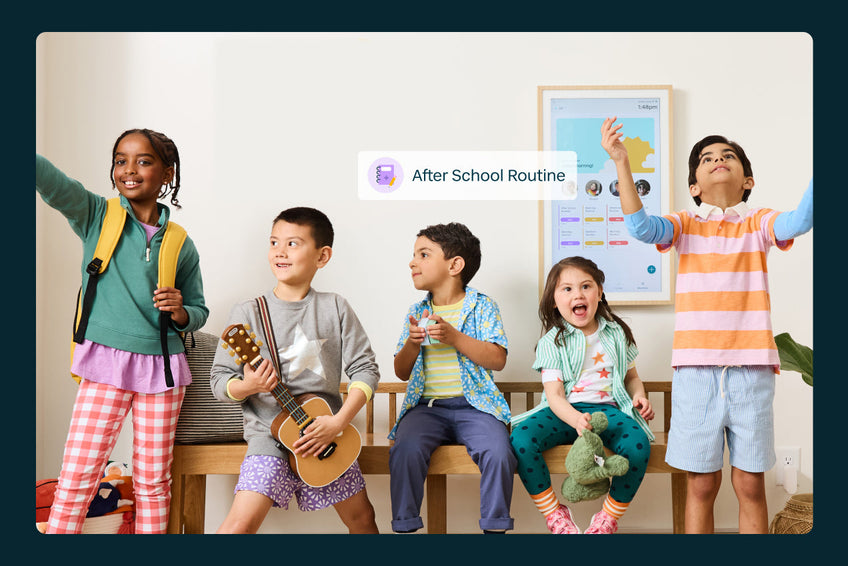Fostering independence in children is a crucial part of their development, helping them grow into self-reliant adults. Here are four research-backed strategies to promote autonomy in kids.
Encourage Decision-Making: Let your children make choices appropriate to their age. This could be as simple as choosing their clothes or deciding what to have for breakfast. A study published in "Developmental Psychology" found that children who are allowed to make decisions have higher self-esteem and are more problem-solving oriented.
With Hearth Display as your family’s source of truth, decision making becomes simplified for kids and adults alike. Instead of checking with mom a hundred times, kids can easily see what the Hearth has to say about what’s for hot lunch or if they should pack their soccer cleats in their backpack.
Provide Opportunities for Problem-Solving: Encourage your child to solve problems on their own. This doesn't mean leaving them to struggle, but guiding them to find solutions. According to a study from the Journal of Experimental Child Psychology, children who engage in problem-solving tasks perform better in independent activities.
Problem-solving comes naturally with Hearth. As kids get older and gain more control over their schedules, this can be reflected in their Hearth Display profiles. Wondering how to make time for homework with multiple afterschool activities? Kids can start to correlate their business with their bandwidth; and make choices from there alongside a parent.
Foster Responsibility: Assigning your child tasks and responsibilities around the house can foster a sense of independence. A study from the Journal of Early Adolescence suggests that children who have regular chores feel more capable and confident in their abilities.
Try assigning to-dos to kids on a recurring basis or setting time aside every week to review moments where they took responsibility. Get creative with chores! Make a list of all the ways the mental load impacts your day and see where kids could help out.
Encourage Independent Play: Independent play allows children to explore and understand the world around them. A study from "Early Childhood Research Quarterly" found that children who engage in independent play develop better social and emotional skills.
For younger kids, building in time for play is incredibly important. Add a step in their nighttime routine to play with siblings or on their own.
Remember, fostering independence doesn't mean leaving children to navigate the world alone. It's about providing a safe environment where they can make decisions, solve problems, and learn from their experiences. With patience and guidance, children will grow in confidence and autonomy.




